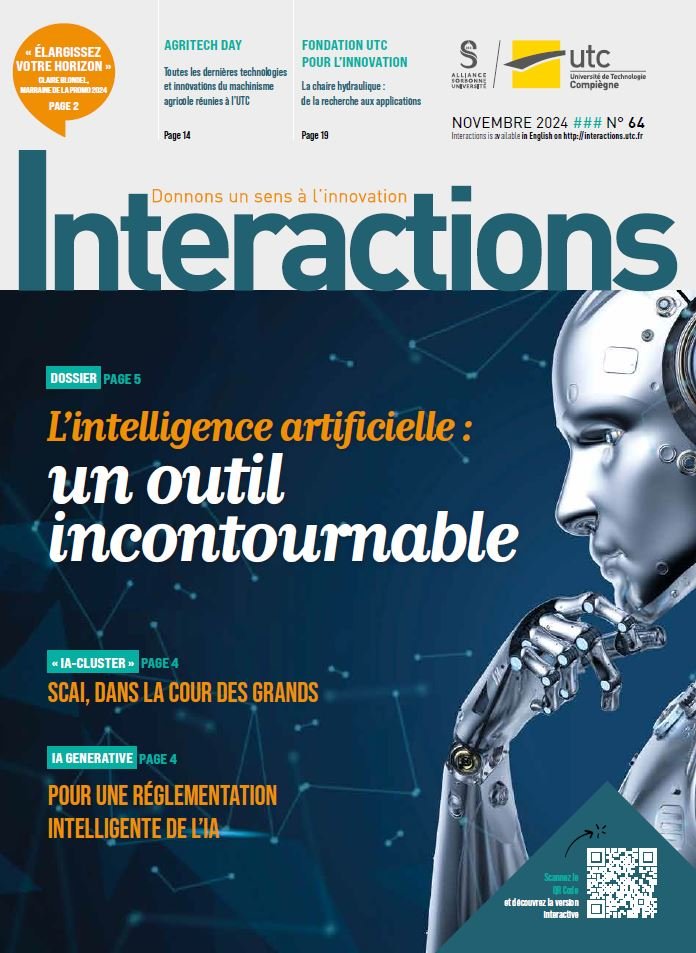Could digital tools be an answer to: democracy’s woes?

The digital world offer many opportunities in terms of citizen participation and local democracy. An ever-increasing number of digital tools enables citizens to take part more easily in public debates. Interactions invites its readers to discover the work of Clément Mabi, a lecturer-cum-research scientist at UTC, focused on this essential question for the city dweller we are
As the world around us is increasingly engulfed by digital techniques and collaborative working, the question of citizen participation has to be reconsidered. Firstly, the expression covers a whole set of tools. Indeed, as of 2018, over 74 digital citizen local participation tools were inventoried. This gave plenty of food for thought to Clément Mabi, senior lecturer-cum-research scientist in ICTs at the UTC-Costech laboratory. His research work focuses on ‘on line” political participation and how citizens actually use digital tools. Recently, he analyzed various topics such as the opening of access to public data (Open Data), and use made of digital tools in concertation, in the development of Open Government and “civic tech”. “The digital tools enable so-called “collective intelligence” to operate as a source for innovative solutions, as happens in participative financing. We can observe a wide diversification of the tools, with mobile “apps”, and a diversification of resources, such as local petitions. Local authorities are no longer alone. Other actors such as change.org provide tools directly on line top citizens. The next phase will be to break down the ‘walls’ between institutional and non-institutional practice. For the time being, what we see is a form of hybridization”, explains Clément Mabi.
“Civic tech”
The new digital tools for citizen participation are also called civic tech, designating a wide range of “apps” and platforms to enable use to be made of collective intelligence protocols and to reinforce the democratic links among citizens, local authorities and the State. It therefore comes as no surprise that civic commitments and citizen participation have become a favourite playground for digital world entrepreneurs. Also, we now see a number of institutions relying on citizen participation to rehabilitate public life and to generate a “new democratic spirit”. “What we can observe, nonetheless, is that the offer to participate largely tends to defend a “change nothing” stance and to democratize inequalities as it develops by favouring certain social groups to the detriment of others”, adds Clément Mabi, who goes on to warn us that: “digital participative tools favour inclusion of certain public categories whilst excluding others. A key factor and challenge here is to avoid recreating a “digital fracture” if we wish to see citizen participation succeed”. Let is not forget that the overarching ambition of these tools is to transform the ways in which democracy works, to improve efficiency and organization thanks to renewed forms of citizen commitments.
THE DIGITAL WORLD AND PUBLIC DEBATE
Twitter® tends to intensify controversies by enhancing their propagation and circulation. Virginie Julliard has been studying tweets that make reference to “gender theory” and “marriage for all”. She observes these new forms of expression transformed into torrents of hatred. Virginie Julliard is a senior lecturer at UTC, appointed to the UTC-Costech Lab and to the research team EPIN (acronym in French for ‘Writings: practices and digital interactions”.
She analyzes how controversies spread via Twitter®, notably when it comes to societal debates on topics like “gender theory” or “marriage for all”. “Basing my work on the case study of “gender theory”, I present an analytical method that combines a quality approach (such as semiotics) with a more quantitative approach of the corpus to see how a controversy spreads in this unique digital form of writing”., explains our research scientist Julliard, whose work focuses on public debate, media production and digital forms of writing. “To do so, we analyzed 107 209 tweets collected between Oct.5, 2014 and July 17, 2017, following a protocol you could call “tool-aided semiotics”. The tool I developed takes into account some hitherto unexploited data collection functions among those that exist in the Twitter analytical world. I was notably able to collect images attached to the Tweets and to recover exchanges in which the tweets were taking place. In this manner, I observed how the exchanges could take conflictual subjects on board and that the subsequent ‘sharing’ of the images enables identification of various communities who are not exactly in phase, politically speaking, but who nevertheless share the same stance in the ongoing debate”, underlines Virginie Julliard, who also authored a book, entitled “De la presse à Internet : la parité en question [From the Press to the Internet; parity called to question], Ed. Hermès-Lavoisier, 2012.




